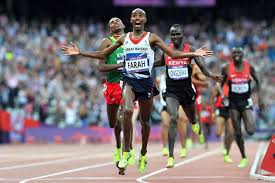As research scientists, you will know the excitement of success, not least of all the moment when you passed your PhD defence. For more seasoned postdocs, that may be some time ago, for PhD students, it’s a future pleasure to look forward to. However, staying in the present, see if you can recall your most recent achievement. It can be anything that makes you feel a sense of pride and accomplishment. It doesn’t have to be a paper in Nature, an international collaboration or successful funding bid. These revered equivalents of Olympic gold, silver and bronze represent some of the most recognised attainments amongst the research community. However, as the sports teacher of double-gold medal winner, Mo Farah, pointed out in an interview during the Olympic games in Rio, it’s easy for us to become obsessed with medals and distracted by league tables, whilst neglecting all those who have managed to qualify and take part, which is an outstanding achievement in itself.
Positive thinking
So, think again. What is your most recent achievement? It can be anything that makes you feel good about yourself, something that provokes a sense of satisfaction when you think about it. It could be a professional or personal accomplishment, something major or relatively small. It has taken a lot of talent and effort to get this far in your career, so whether you’ve recently generated some new results, completed your analysis, started to write your thesis, given a great lecture, written a blog or even juggled a family event or run your personal best, take some time to reflect and revel in your achievement. Focusing on the positive can help you through the dark days when your experiments aren’t working or your paper has just been rejected. Recall something that you have done well and look to the future to boost your confidence. Write it down and then get on with working on tomorrow’s achievement.
Positive action
Researchers and PhD students have many opportunities to apply for awards, fellowships and a variety of competitions. For example, my organisation, the Society for Experimental Biology (SEB), each year recognises four early career leaders in the fields of education, plant, cell and animal biology through its ‘president’s medal awards’. It also hosts a Young Scientists Award session and poster prizes during its annual conference, as do many other scientific meetings. This is a great way to add additional evidence of your research excellence to your CV. However, belonging to learned societies and professional bodies and attending conferences and meetings can also help you to gain a sense of achievement: It might be making links with other bioscientists leading to a lab visit or even a job offer, it could be winning a travel grant to attend a conference, an informal chat which opens up a new line of thinking, or simply experiencing an international scientific meeting for the first time.
My own personal achievements range from publishing my first book, which took me about two years to write, through to everyday stuff such as writing a couple of articles for our society magazine and completing the programme for a one-day conference I’m involved in organising. I even count this blog as an achievement, since I set myself a goal of writing one per month and I’m two days ahead of my February deadline.
Think about what you’ve achieved at the end of every day and you may well surprise yourself!
